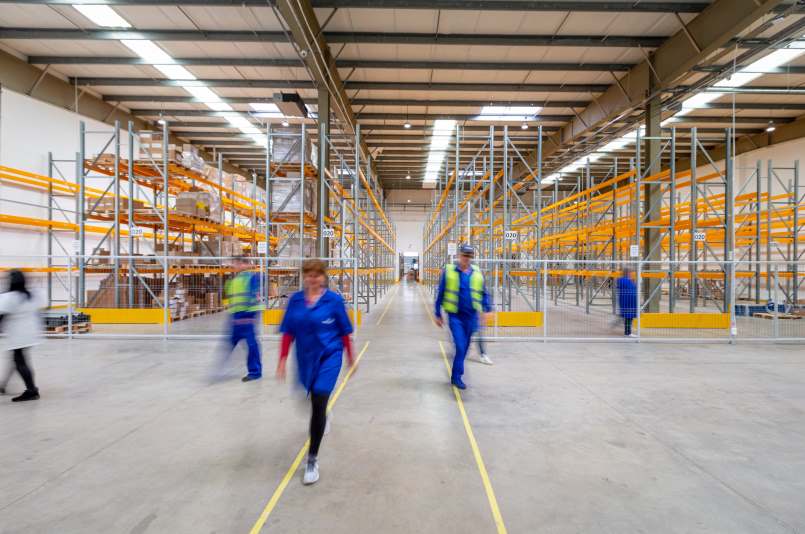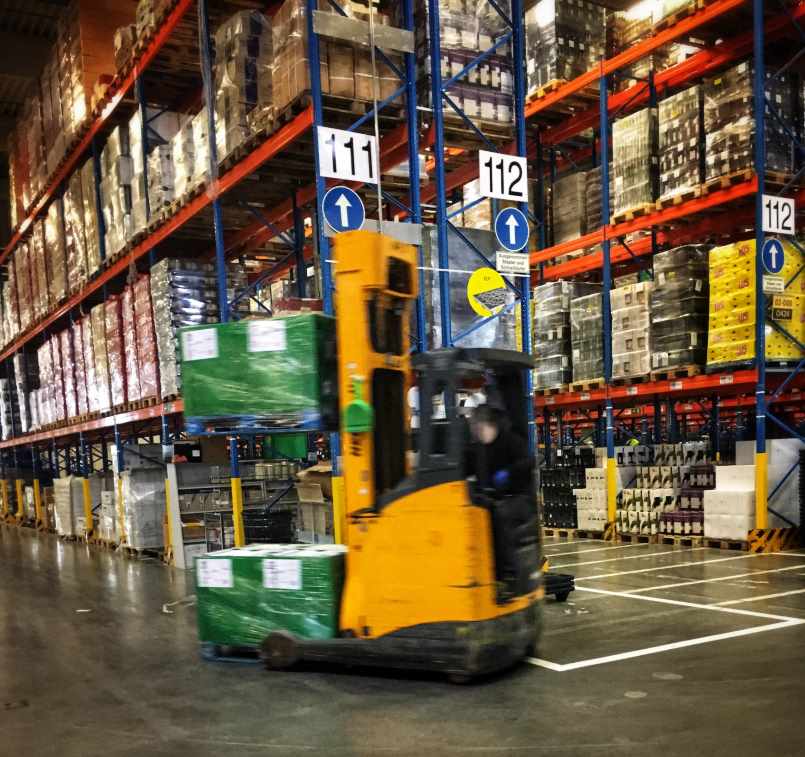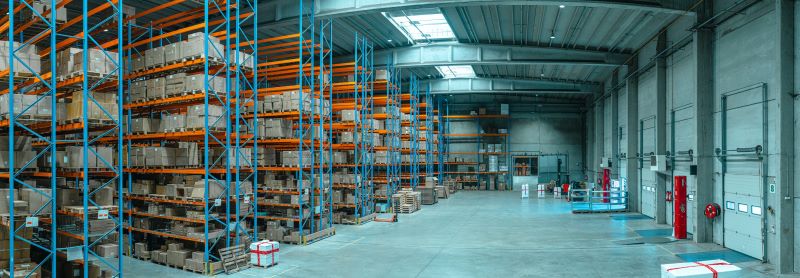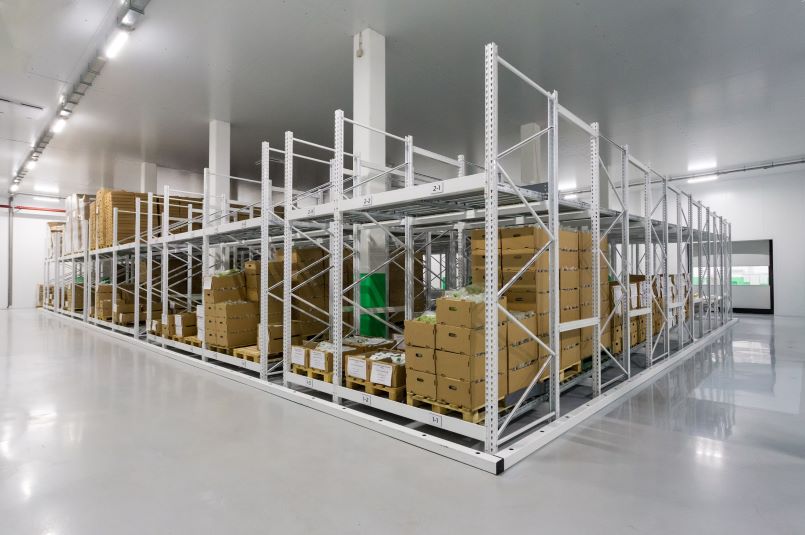Are you seeking the best 3PL warehousing company to provide storage services? In today's highly competitive business environment, effective warehouse storage services are crucial for the success of businesses. As a business owner or supply chain professional, you may be challenged to choose the best warehousing company in China to meet your needs. JIKE offers outstanding 3PL warehousing and storage services to fulfill your business requirements.
We have years of experience and expertise and are dedicated to providing our customers with the best warehouse storage solutions. Our team will collaborate with you to understand your business needs and tailor your most suitable warehousing and storage service needs. Whether you require temporary storage, distribution, or long-term warehousing solutions, we are committed to delivering reliable and professional services.
Let us provide you with excellent warehouse storage services and help you achieve greater success in your business!

What is a warehouse storage service?
Warehouse storage services is a specialized logistics service that provides secure, reliable, and efficient storage, and management of goods. It involves the warehouse aspect of the logistics supply chain, helping businesses address the challenges of inventory management and storage of goods.
The primary functions of warehouse storage service are to provide support and solutions to businesses in the following aspects:
Goods storage and preservation: Warehouse storage service offers appropriate warehouse facilities for the proper storage and protection of various goods, including raw materials, finished products, and components. It ensures safe and orderly storage of goods in suitable environments to prevent damage, loss, or theft.
Inventory management: Warehouse storage service assists businesses in achieving effective inventory control and optimization through advanced inventory management systems and technologies. It encompasses goods receipt, dispatch, location management, inventory monitoring, and adjustments. Accurate inventory management reduces inventory costs, improves inventory turnover, and ensures timely fulfillment of customer demands.
Goods distribution and preparation for delivery: Warehouse storage involves storing goods and their distribution and preparation for delivery. It provides efficient handling, sorting, packaging, and labeling of goods to facilitate on-time deliveries as per order requirements. The distribution aspect of warehouse storage service ensures timely and accurate delivery of goods to their destinations.
Storage facilities and equipment: Warehouse storage service offers modern storage facilities and equipment, including racks, forklifts, handling equipment, and safety measures. These facilities and equipment ensure safe and efficient storage and handling processes, enhancing work efficiency and employee safety.
You can focus on your core operations by leveraging warehouse storage services. Entrusting inventory and storage management to professional warehouse storage service providers can reduce operational risks and costs, improves logistics efficiency, and enhances customer satisfaction.

Warehouse Types
Various warehouses exist in logistics and supply chain management, each specifically designed to meet different goods' storage and management needs. Here are several common warehouse types:
General Warehouse: General warehouses are the most common type used to store general goods such as consumer products, appliances, textiles, etc. These warehouses typically have appropriate shelves and storage space for classifying and storing goods based on their characteristics.
Temperature-Controlled Warehouse: Temperature-controlled warehouses store goods that require specific temperature control, such as food, pharmaceuticals, and cosmetics. These warehouses have temperature control systems to ensure that goods are stored within the appropriate temperature range, preventing spoilage or deterioration.
Cold Storage Warehouse: Cold storage warehouses are a specialized type of temperature-controlled warehouse specifically for storing frozen food and chilled goods. These warehouses maintain very low temperatures, typically within below freezing range, to preserve the freshness and quality of the goods.
Hazardous Material Warehouse: Hazardous material warehouses are used to store hazardous substances, such as chemicals, flammable materials, explosives, etc. These warehouses adhere to strict safety regulations and standards and are equipped with special facilities and equipment to ensure the safe storage and handling of hazardous materials.
Cross-Docking Warehouse: Cross-docking warehouses are located near international trade borders and are used for processing and storing cross-border logistics goods. These warehouses provide services such as customs clearance, import/export documentation, and distribution to efficiently handle the flow of international goods.
Contract Warehouse: Contract warehouses are operated and managed by third-party logistics service providers, offering customized warehousing solutions for specific clients. These warehouses provide exclusive facilities, equipment, and services based on client requirements to meet specific business needs.
Each warehouse type provides the appropriate storage environment and management services tailored to specific goods and requirements. Companies can choose the proper warehouse type based on the characteristics and needs of their goods to ensure safe, fresh, and efficient inventory management.
Distribution Centers vs Warehouses
Distribution centers and warehouses are related but distinct concepts in supply chain management. They play different roles in the flow and distribution of goods.
A warehouse refers to a facility used for storing and managing goods. Its primary functions are receiving, storing, and dispatching goods. Warehouses are typically located at different nodes within the logistics network and serve as temporary storage for goods until they are further processed and distributed. The task of a warehouse is to provide a secure, organized, and efficient storage environment to ensure the protection and readiness of goods.
A distribution center is a broader concept and serves as a transit point for goods from the warehouse to their final destination. Distribution centers are responsible for order picking, packaging, and distribution preparation. They are usually located near urban areas or target markets to facilitate the convenient shipment of goods to end-users. Distribution centers play a critical role in the supply chain by coordinating the sorting and delivery of goods.
There are the following connections and distinctions between distribution centers and warehouses:
Function: The primary function of a warehouse is to store goods and ensure their safekeeping and organized management. A distribution center focuses more on order picking, sorting, and final delivery of goods, moving them from the warehouse to their destination.
Flow: The typical flow of goods in the supply chain is from suppliers to warehouses, distribution centers, and end-users. Warehouses act as intermediate points, responsible for receiving and temporarily storing goods, while distribution centers serve as sorting and distribution hubs, handling order picking and preparation for shipment.
Location: Warehouses are typically located at key nodes within the supply chain network to store and manage goods at different stages. Distribution centers are usually situated near urban areas or target markets for more convenient distribution to end-users.
Objective: The objective of a warehouse is to provide storage and management services for goods, ensuring their flow within the supply chain. The goal of a distribution center is to efficiently sort and distribute goods to end-users, meeting market demands.
Distribution centers and warehouses play different roles in supply chain management. They collaborate to ensure the flow and ultimate delivery of goods within the supply chain.
Advantages of 3PL warehouse storage services
Using a third-party logistics (3PL) warehouse is a common choice for many businesses in logistics and supply chain management, as it offers a range of cost-saving advantages and economic benefits. Here are some aspects of using a 3PL warehouse that can help businesses save costs:
Reduced fixed costs: Owning and operating a warehouse requires substantial investment in construction, equipment procurement, personnel recruitment, and training. In contrast, using a 3PL warehouse allows these fixed costs to be converted into variable costs, paid based on actual needs. This avoids long-term capital investment and maintenance expenses, helping businesses reduce cost risks.
Flexible expansion and contraction: Business warehousing needs may vary with seasonal demands or market fluctuations. Using a 3PL warehouse enables businesses to flexibly expand or reduce storage space, adjusting according to actual needs and avoiding the costs of long-term leasing or maintaining excessively large or small warehouses.
Lower operational costs: 3PL warehouses typically have higher operational efficiency and specialized knowledge, enabling them to improve work efficiency through optimized warehousing processes and advanced technologies. This can reduce product loss, improve loading and unloading efficiency, and lower inventory holding costs, resulting in operational cost savings.
Avoidance of logistics management complexity: Owning and managing a warehouse requires a significant amount of effort and resources to handle warehouse operations, personnel management, safety, and compliance. Using a 3PL warehouse allows these complex logistics management tasks to be entrusted to professional supply chain service providers, enabling businesses to focus on core operations and reducing management complexity and labor costs.
Utilization of expertise and resources: 3PL warehouses often possess extensive logistics experience and specialized knowledge, providing high-quality warehousing storage services and solutions. This includes optimized inventory management, advanced security measures, and the implementation of advanced warehousing technologies. By leveraging the expertise and resources of 3PL warehouses, businesses can operate more efficiently and gain cost advantages.
Using a 3PL warehouse can save business costs in multiple aspects. By choosing 3PL warehouse storage services, companies can achieve more efficient and reliable logistics and warehousing management while reducing costs, mitigating risks, and enhancing their competitive edge.

Tip: how to find the best 3PL warehouse
Define your requirements and goals: Start by clearly defining your storage needs and goals. Determine the type, scale, specific requirements of your goods, and the desired scope and level of services. Clarify whether your goal is efficient inventory management, on-time delivery, or other improvements.
Evaluate service providers' expertise: Assess potential 3PL warehouse service providers and understand their expertise and experience. Check their qualifications, industry recognition, and customer reputation. Learn about their warehouse facility conditions, technical capabilities, and service commitments to ensure they can meet your needs.
Consider the location and transportation connectivity: Geographical location and transportation connectivity are critical for warehouse storage services. Ensure that the chosen 3PL warehouse has a location convenient for the flow of goods and has good transportation connectivity. Consider proximity to key nodes and transportation hubs in your supply chain network for efficient goods transportation and distribution.
Understand technology support and system integration capabilities: Modern warehouse storage services rely on advanced technology and system support. Ensure the 3PL warehouse service provider has advanced warehouse management systems, inventory tracking technologies, and data analytics capabilities. Understand their system integration capabilities, including interfaces and data exchange with your enterprise systems, to ensure smooth information flow and collaborative operations.
Consider contract terms and insurance coverage: Carefully review contract terms, including service scope, service levels, fee structures, and insurance coverage. Ensure the contract terms are clear and reasonable and discuss appropriate insurance coverage with the service provider to mitigate potential risks.
Visit the warehouse and communicate face-to-face: Arrange visits to potential 3PL warehouses to observe their operations and facility conditions. Face-to-face communication with the service providers to discuss your needs and expectations, ensuring mutual understanding and smooth communication.
Consider price and cost-effectiveness: Lastly, consider price and cost-effectiveness. Compare the price structures and cost breakdowns of different service providers and discuss reasonable cost arrangements with them. At the same time, weigh the price against the offered service quality, expertise, and technology support to choose the most cost-effective 3PL warehouse service.
Avoid these two misconceptions when selecting warehouse storage services:
Solely considering price as the determining factor: One common misconception is solely considering price as the primary selection criterion. While price is an important factor, focusing solely on price may lead to overlooking other critical factors, such as service quality, warehouse facility conditions, and the reliability of the supply chain. It is essential to consider multiple factors comprehensively to make a wise choice and ensure that the selected warehouse storage service provider can meet the needs of the business.
Neglecting geographical location and transportation connectivity: Geographical location and transportation connectivity are crucial for warehouse storage service selection. If the warehouse facility is not conveniently located within the customer's supply chain network, it may lead to transportation delays, high transportation costs, or other logistical issues. When choosing warehouse storage services, it is important to consider whether the service provider's geographical location facilitates the flow of goods and ensures good transportation connectivity to achieve efficient transportation and distribution.
Remember to prioritize comprehensive considerations when selecting 3PL warehouse services rather than solely focusing on price. With Jike's tips, we believe you can find the best 3PL warehouse service that offers efficient and reliable storage solutions for your business.

Why choose JIKE as your warehouse storage services provider in China?
JIKE got six basic warehouse storage services:
1. Inventory management: JIKE offers comprehensive inventory management services through advanced warehouse management systems. This includes inventory tracking, storing and allocating goods, inventory counting, inventory reporting, etc., helping businesses achieve accurate inventory control and management.
2. Order processing: JIKE handles customer orders, ensuring order accuracy and timeliness. We are responsible for order receipt, checking inventory availability, picking goods, packaging and labeling items, and arranging shipment. JIKE's efficient order processing workflow ensures the timely delivery of customer orders.
3. Goods packaging: JIKE provides professional goods packaging services to ensure the safety and integrity of goods during warehousing and transportation. We use appropriate packaging materials and methods to pack goods based on their characteristics and transportation requirements, maximizing protection against damage.
4. Goods sorting and distribution: JIKE sorts and arranges the distribution of goods according to customer requirements. We select suitable transportation options and delivery services based on factors such as destination, mode of transport, and delivery time, ensuring timely delivery of goods.
5. Inventory reporting and data analysis: JIKE offers inventory reporting and data analysis services, helping clients understand crucial information such as inventory status, sales trends, and demand forecasting. By providing accurate inventory reports and in-depth data analysis, clients can make informed decisions to optimize inventory management and supply chain operations.
6. After-sales services: JIKE provides comprehensive after-sales services, including returns processing, refund management, and customer support. We handle return requests, inspect the condition of returned goods, process refunds, and maintain timely communication with customers to resolve after-sales issues.
We aim to provide customers with a one-stop warehousing solution, helping you streamline supply chain management and achieve efficiency and cost control objectives. Whether it's a large enterprise or a small and medium-sized business, we can provide customized warehouse storage services and professional support based on your needs and requirements. We will wholeheartedly provide you with high-quality services and satisfactory results.
FAQ
| Q: What types of warehouse storage services do you provide? |
| A: We provide comprehensive warehouse storage services, including inventory management, order processing, packaging and labeling, and transportation coordination. Our goal is to offer efficient and reliable logistics solutions to our customers. |
| Q: How are your warehouse facilities? |
| A: Our warehouse facilities have modern equipment and advanced technological support. Our facilities include general warehouses, temperature-controlled warehouses, and hazardous goods warehouses to meet the storage needs of different goods. |
| Q: Do you offer flexible warehouse space leasing options? |
| A: Yes, we provide flexible warehouse space leasing options. We can offer different sizes and types of warehouse space according to your needs to accommodate your storage requirements. |
| Q: Can we access and monitor our inventory at any time? |
A: Yes, we provide an online platform and systems that allow you to access and monitor your inventory anytime. You can view real-time inventory data, including inventory quantities, goods status, and transaction records. This enables you to manage inventory information and make informed management decisions conveniently. |
| Q: Does your warehouse storage service include returns handling? |
| A: Yes, our warehouse storage service includes returns handling. We have well-established returns management processes to ensure the timely handling and tracking of returns, working closely with you to meet your after-sales needs. |
| Q: Are your warehouse storage services integrated with other logistics services? |
| A: Yes, our warehouse storage services can be integrated with other logistics services. We establish close partnerships with collaborators and suppliers to achieve seamless logistics processes and collaborative operations, providing comprehensive logistics solutions. |


Consult Our Experts